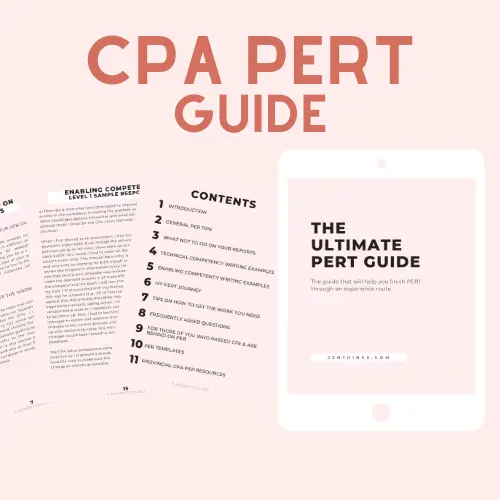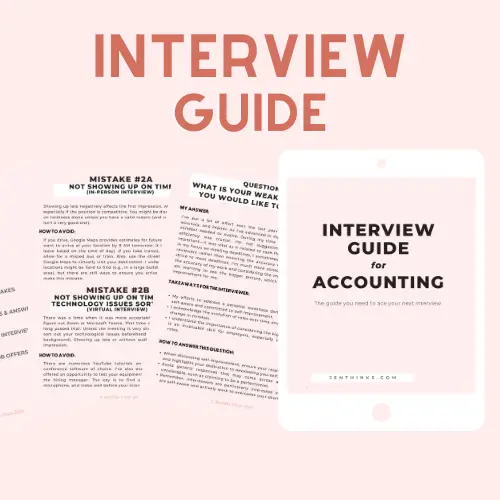I finished my 5-hour long (120-min & 80-min cases with a 25-min break) Finance exam at home a couple of hours ago and was on the phone after with a couple of my friends who wrote the same exam. I usually avoid talking about an exam after-the-fact because it does more harm than good. However, 2020 is a year of not enough social interactions so I took the opportunity when my friends wanted to talk.
Even though it turned out we had completely different NPVs for our valuations, I still think we passed because the pass rate was 90% on average for the past 2 years. In another word, 9 out of 10 candidates passed.
So, I thought this would be a good opportunity for me to share what I thought went well during the exam and during the module. Even though I will be referring directly to the Finance module, I think this can be applied to all PEP modules.
What Went Well When I Wrote The Exam At Home
The day before my exam, I shared my checklist to help people get ready to write the exam at home. You will see that I prepared a laptop that remembered my cell’s hotspot as a backup. That was because my power went out on Sunday which prompted me to realize it could happen during the exam. I knew how tight the time limit is during a PEP exam and I highly doubt there would be time to re-write my qualitative or re-setup my quantitative responses. I never had to leave my seat during the 2-hour long case as I had everything I needed. The second case was shorter so I also remained in my seat.
For an exam where a lot of the difficulty is derived from the time constraint, being well-prepared definitely helped me feel calm.
Also, I applied the case-writing approach I learned from the Core 1 & Core 2 module workshops and the Densmore Finance Elective Essentials package* to the exam cases. I used scrap paper (as opposed to an electronic outline) and crossed items off as I typed my response. I was glad I did because even though time was not as much of an issue for the first case, it was extremely helpful for the second one.
What Went Well During The Module
If you have been reading my posts for the past 5 months, you would know that I did not just “wing it”. I had a plan when I started the extended Finance module and it was continually revised as I went.
RELATED POST – Starting the Extended Finance Module (+ 2 Efficient Ways to Tackle Your First Assignment
When I was close to finishing the CPA module content, I worked on a specific study plan for the remaining 7 weeks leading up to the exam. I went into details on what the plan was in this post if you are interested. Like all plans, it was revised continually. I took rest days and studied on average just over an hour a day. The only day I studied for close to 4 hours was on the last Sunday before the exam when I wanted to make sure I was prepared enough to take it easy the night before my exam. I also referenced the Competency Map for the first time and it helped me make sure my study plan has covered almost all grounds.
RELATED POST – My Finance Exam Study Plan + Densmore Finance Elective Essentials
If you followed my Instagram stories, you have probably seen me struggling multiple times in the last few weeks leading up to the exam. That was because the material was difficult. This module really challenged me to apply critical thinking and foundational knowledge from all prior PEP courses and college courses. It got even harder when I attempted the 4 Densmore cases from their Finance Elective Essentials package*. However, exactly because of those struggles, I now feel confident that I passed. The exam was far from easy as I barely had time to finish the second one but I just knew I have scored enough AOs to pass (remember, 90% pass rate).
~ More CPA Posts ~
CPA PEP Core 1 – How to Study for the Module and the Exam
CPA PERT – Ultimate Guide on How to Get Your First Experience Report via EVR Approved
CPA PERT – Enabling Competencies Examples
Densmore for CPA PEP – Are The PEP Essentials Packages Worth It?
CPA PEP Module – Regular Module or Extended Module?
Most importantly, because I was able to learn the material without much time-constraint by taking the extended pace, I know I will retain a lot of the knowledge even after the exam. This will be very useful when I study for CFE.
I am aware this might not be applicable to you if you took Finance or other PEP modules at the regular pace (8-week versus 20-week for me). However, regardless of length, a flexible plan is the key to a relatively stress-free, manageable experience (e.g., no all-nighter, no exceptionally long study days).
I will write a separate post on what I studied for the exam later this week while my memory is still fresh.
*this was sponsored by Densmore Consulting Inc in exchange for a review


